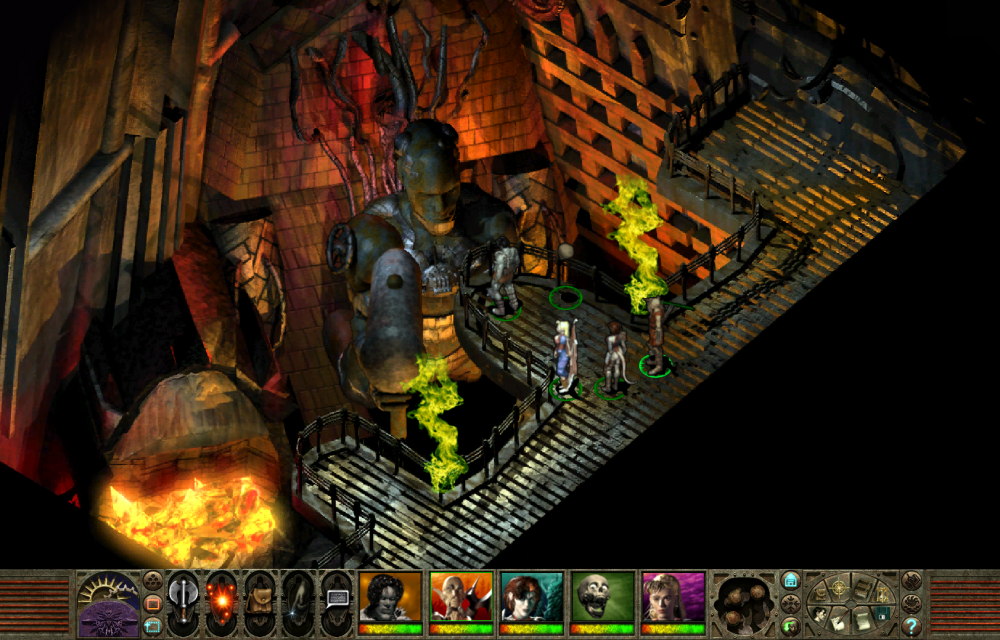
When gamers co-pilot the story
Ernest Adams first came to Campus Gotland as a one-day guest lecturer in 2004, though back then it was still a university college (högskola). They invited him back several times and eventually, five years ago, he was asked to come on permanently as a senior lecturer at the Department of Game Design. By this time, Gotland university college had merged with Uppsala University.
– They couldn’t quite decide what to do with our department. The computer science department didn’t want us since what we do isn’t strictly computer science. We ended up at the Faculty of Art, which was the right place to put us, I think. Game design is an art form, Ernest Adams says when we call him while he is at his summer house in England.
He is currently teaching an optional course on interactive storytelling in video games for third year students of the bachelor programme of game design at Campus Gotland. The subject of his current course was also the subject of the thesis that got him a PhD from the University of Teesside (UK) in 2013.
– I’m interested in the problems of interactive storytelling, and my work so far has been primarily from a philosophical point of view, Ernest Adams says.
"The hero of the game must be challenged and that calls for a limitation of powers."
Games in which you get to make choices that affect the outcome – in which the player is given agency – is the focus of Ernest Adams research. His aim has not been to create a set definition of what good interactive storytelling in games is, but rather to propose certain qualities, or standards, that should be met when designing these types of games to give the player as good of an experience as possible, he explains.
– You encounter certain problems as a game designer when you decide to give the player agency. You have to balance your own desire to tell your story, with the player’s wish to make their own choices, Ernest Adams says.
A common problem he has encountered among game designers is a failure to define what they want the game to actually do and what they want the player to experience.
– A writer may choose to limit the player’s agency and tell a more linear story, and there is nothing wrong with that, many gamers are happy to have more of a cinematic experience. But it’s important then to not trick the player and give them the illusion of agency, where you might present choices that actually have no effect on the outcome of the game.
Should the designer wish to create a truly interactive story though, there are several challenges at hand. The more freedom the player has to make choices, the more possible outcomes and content the designer must create of course, which in itself is a limitation unless you have endless amounts of time and resources.
– If you create a story where the player has a lot of agency, you usually either have to limit the scope of outcomes to only a handful, or create a very simple text based game, Ernest Adams says.
Unless you have a sandbox game where there is no story driven progression (e.g. Minecraft and Second Life) the developer must create logical limitations that are consistent with the storyline.
– The hero of the game must be challenged and that calls for a limitation of powers. Take Superman for example, he has seemingly limitless powers, which is why they had to invent kryptonite to make him vulnerable.
Another aspect game designers must consider is, of course, the enjoyability of their product. Though the writing of a game might in many ways be similar to other fictional writing, the pressure of commercial success puts more restraint on a game script.
– Most game writers can’t be Kafka or Bergman. If the player has spent 40 hours on a game and they die in all possible outcomes, they will most likely not enjoy the game. There has to be a sense of accomplishment when you finish a game. I worked as a consultant for a game some years ago, and the designers had only created bad outcomes. I advised them to create at least one happy ending and in the end they did.
To make the most of player agency, the designers must create situations in which the player has interest in all possible outcomes.
– The best writing in games often touches on classic moral philosophy – do you kill one person to save a group? You have to create options that are equally good or bad and that are mutually exclusive.
In the future, Ernest Adams hopes to continue his research on interactive storytelling, but through data collection.
– I want to switch from the abstract and theoretical to the more practical. I want to know what people consider to be components of a good story, as there is no existing definition of that. Especially, I would like to know what people who teach and work with creative writing considers a good story, so that we can use that in the gaming industry.

Ernest Adams is originally from the US and has worked in the videogame industry since 1989. (Photo: Private)


























